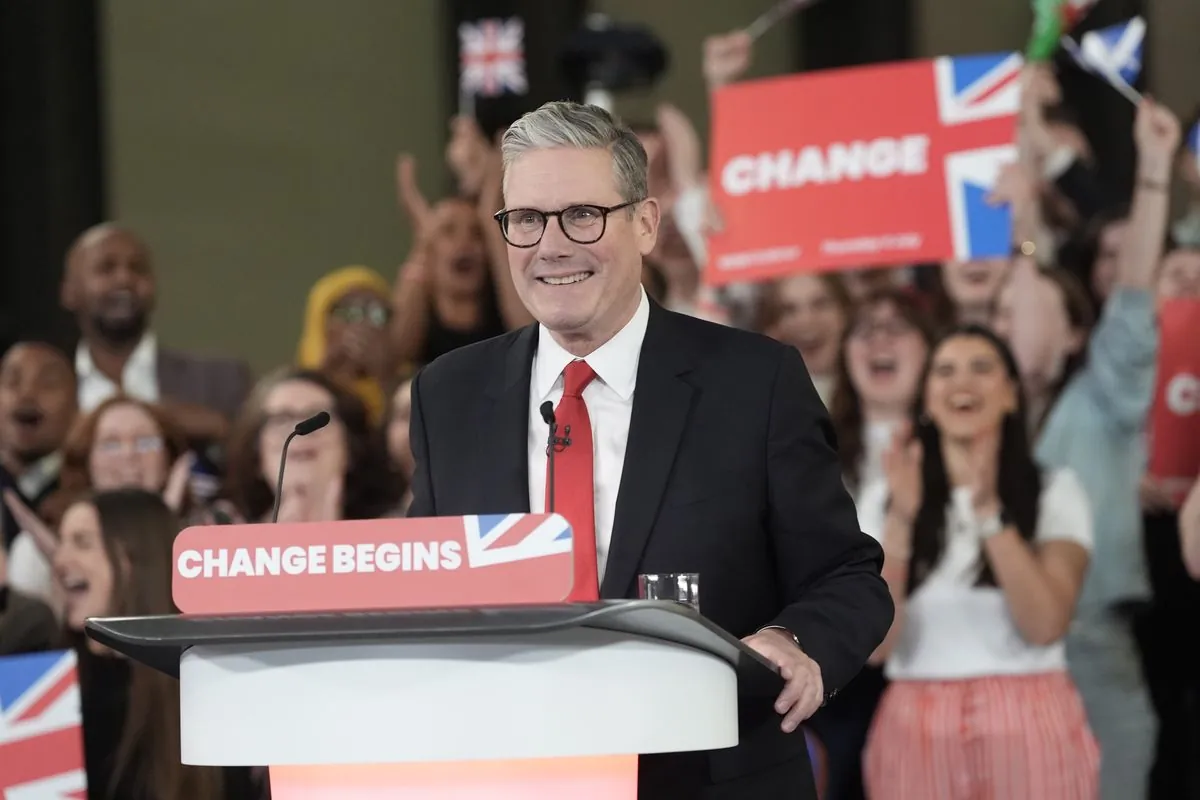Starmer's Winter Fuel Payment Cut Sparks Pensioner Welfare Debate
Labour leader Keir Starmer confirms removal of winter fuel payment for pensioners, sparking criticism. Decision contrasted with union pay rises, raising concerns about Labour's priorities and impact on elderly welfare.

Keir Starmer, leader of the UK Labour Party, has confirmed the removal of the winter fuel payment for pensioners, a decision that has ignited a heated debate on elderly welfare. This move, described by Starmer as a "choice he has to make," has been met with significant criticism and skepticism.
Critics argue that this decision is not a necessity but a calculated political move. The contrast between the treatment of pensioners and trade unions, which continue to receive substantial pay rises, has been particularly highlighted. This disparity raises questions about Labour's priorities and financial management.
The winter fuel payment, introduced by Labour in 1997, has been a crucial support for many elderly individuals. Its removal could significantly impact the lives of over 10 million pensioners, especially considering the UK's aging population, with more than 12 million people aged 65 and over as of 2021.

The potential financial burden on pensioners extends beyond the loss of the winter fuel payment. There are discussions about a possible retirement tax on pensioners' tax-free allowance, further exacerbating concerns about elderly welfare under a Labour government. This is particularly worrying given that approximately 1.7 million pensioners in the UK already live in relative poverty.
Critics argue that this approach starkly contrasts with the Conservative Party's traditional stance on pensioner welfare. The Conservatives introduced the triple lock pension guarantee in 2010, aiming to ensure that state pensions keep pace with inflation. However, it's worth noting that despite these measures, the UK state pension remains among the lowest in developed countries as a percentage of average earnings.
The impact of this decision could be severe, especially in the context of rising energy costs and the ongoing cost of living crisis. Fuel poverty affects around 3.2 million households in England, and the removal of the winter fuel payment could exacerbate this issue for many pensioners.
"How we treat people who have worked hard all their lives says a lot about who we are as a society. Under the Conservatives, we made sure that pensioners could live in dignity and security in retirement. It goes to our core as Conservatives. The very first chance they get, Labour has thrown these pensioners to the wolves."
Labour's decision has been criticized as prioritizing union interests over the welfare of pensioners. This perception is reinforced by the historical ties between the Labour Party and trade unions, which remain significant donors to the party.
As the debate continues, there are calls for Labour to reconsider this decision. The treatment of pensioners is seen as a reflection of societal values, and many argue that ensuring the dignity and security of those who have contributed to society throughout their lives should be a priority for any government.
With life expectancy in the UK having increased by about 30 years over the past century, and the proportion of GDP spent on pensions projected to rise significantly by 2050, the issue of pensioner welfare is likely to remain a critical point of political and social debate in the coming years.


































